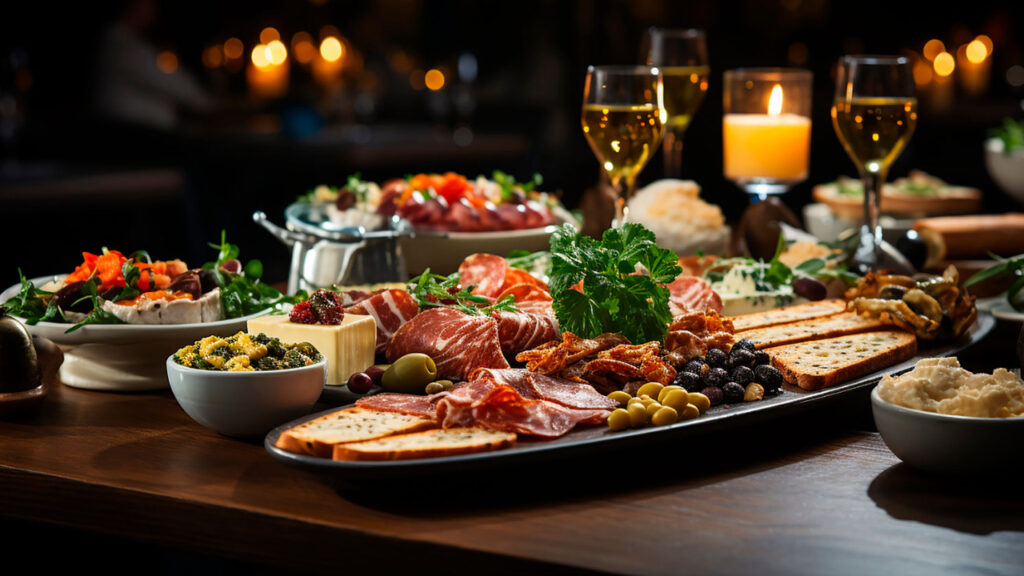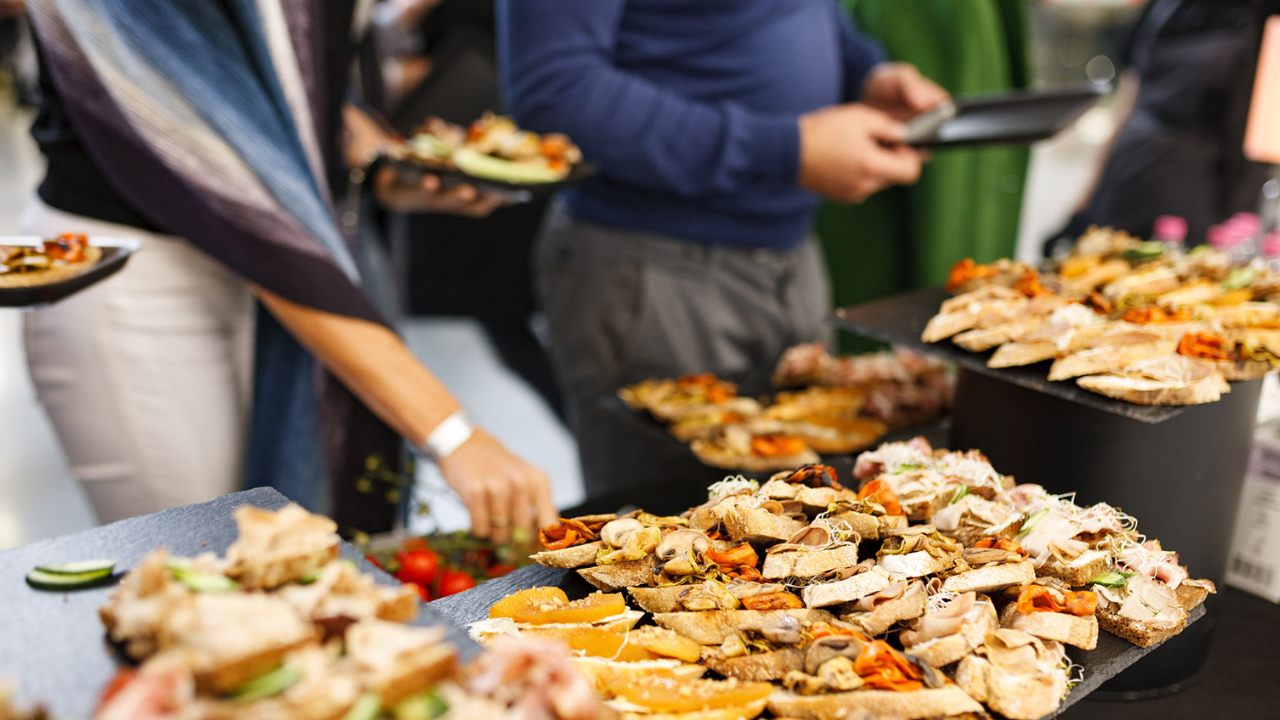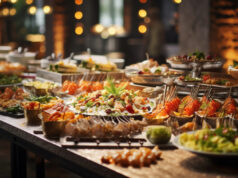The wedding day is one of the most memorable occasions of anyone’s life. But organizing a wedding can sometimes feel like a daunting task, especially when it comes to satisfying diverse dietary preferences and requirements. In this article, we’ll explore strategies for successfully managing dietary requirements at your European wedding, ensuring that every guest enjoys an unforgettable culinary experience.
▶️ Read also: Choosing the perfect European wedding venue
Understanding dietary requirements at weddings
In today’s world, dietary requirements can be diverse, and it’s no different at weddings. These requirements may stem from health reasons, personal choices, or religious beliefs.
For example, some people might be following a vegetarian or vegan lifestyle, others might be gluten or lactose intolerant, while others may adhere to halal or kosher diets.
One way to handle this is by sending a pre-wedding survey or RSVP card that allows guests to indicate their specific dietary needs. By understanding the scope of dietary needs, you can plan your wedding menu accordingly, ensuring that every guest has something delicious and suitable to enjoy.
Partnering with a Knowledgeable and Flexible Caterer
Hiring a caterer who is experienced in handling various dietary needs can make a world of difference. For example, in France, caterers might be asked to prepare coq au vin for meat-eaters, and a vegetable ratatouille for vegetarians.
“By a stroke of incredible luck, the bride found a vegan caterer in the small village (1900 inhabitants) just below the country house, as reported in this guest testimony from a wedding in France, on the Madmoizelle website. The menu was by Cuit Lu Cru, which offers only vegan, seasonal, raw or barely cooked dishes. And the prices were reasonable: if we’d split it all up, it would have cost just under €40 per person (without drinks – we’d stocked up on Gewurztraminer and Riesling).”
In Italy, it might be a spread of prosciutto di Parma and mozzarella di bufala for traditionalists, risotto ai funghi for vegetarians, and penne all’arrabbiata for vegans. An experienced caterer would know how to balance these requirements without compromising the integrity of their dishes.
Crafting an all-inclusive menu
An all-inclusive menu can help in making everyone feel welcomed. For instance, in Spain, you could include a selection of tapas that cater to various dietary needs. Traditional gambas al ajillo (garlic shrimp) and jamón ibérico can be offered alongside vegetarian patatas bravas (spicy potatoes) and vegan escalivada (roasted vegetables).
Providing food options that cater to every dietary preference not only shows your thoughtfulness but also allows guests to try and enjoy a variety of dishes.

Emphasizing allergen awareness and food labelling
Dealing with food allergies requires careful attention. Cross-contamination can be a serious concern, and as such, caterers must adhere to stringent food preparation protocols.
For instance, a Greek wedding might include baklava, a sweet pastry that traditionally contains nuts. Those with nut allergies must be alerted, which can be easily accomplished with clear food labels detailing ingredients. Labels also help guests identify vegetarian, vegan, and gluten-free options, easing their dining experience.
🥣 Five intolerances to consider :
- Gluten Allergy / Celiac Disease: Gluten is a protein found in wheat, barley, and rye.
- Dairy / Lactose Intolerance: Some people can’t tolerate lactose, a sugar found in milk and dairy products.
- Nut Allergies: Nut allergies, including peanuts and tree nuts (like almonds, walnuts, and cashews), can cause severe reactions.
- Shellfish Allergy: Shellfish allergies are common and can cause severe reactions.
- Egg Allergy: Some people are allergic to proteins in egg whites, egg yolks, or both.
Considering the drinks menu
The drinks menu is another area where dietary preferences play a role.
Some guests may prefer non-alcoholic beverages or have allergies to ingredients commonly found in cocktails. For a wedding in Germany, for example, a range of local beers might be on offer, but non-alcoholic beers and wines, as well as a selection of fruit juices, should also be available to cater to all guests.
Providing a children’s menu
When designing a children’s menu for a wedding, focus on providing meals that are fun, visually appealing, and easy to eat. Combine familiar favourites with a gentle introduction to new flavours, ensuring you offer smaller portions that are appropriate for their smaller appetites.
Don’t forget to make the meals nutritionally balanced by incorporating vegetables and fruits in creative ways and opting for whole-grain options where possible. Provide a variety of kid-friendly beverages, including fresh juices and fun, non-alcoholic ‘mocktails.’ Be aware of potential food allergies among the young guests, and label foods accordingly.
Finally, offer a range of kid-appealing desserts, like cupcakes or fruit skewers, making sure to balance these sweet treats with healthier options throughout the day.
Maintaining clear communication
In conclusion, navigating dietary requirements at a European wedding can seem daunting, but with careful planning, clear communication, and an understanding caterer, it’s entirely possible to create a menu that suits everyone’s needs.
Whether it’s accommodating allergies, providing child-friendly dishes, or offering options for various lifestyles like vegetarian or vegan, your thoughtful planning will ensure all guests can relax, enjoy, and celebrate your special day with a delicious meal. Remember, the ultimate goal is to create an inclusive atmosphere where everyone feels valued and satisfied.






